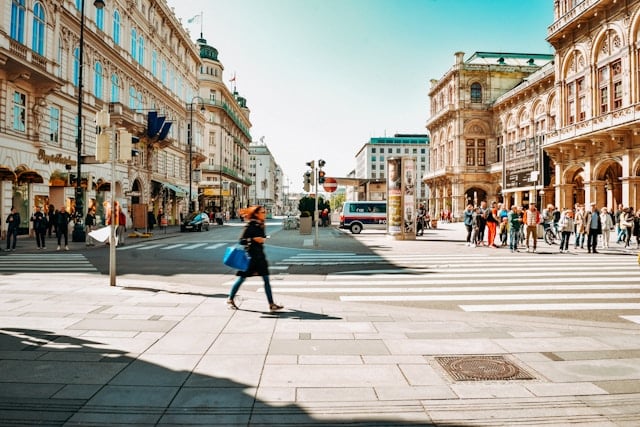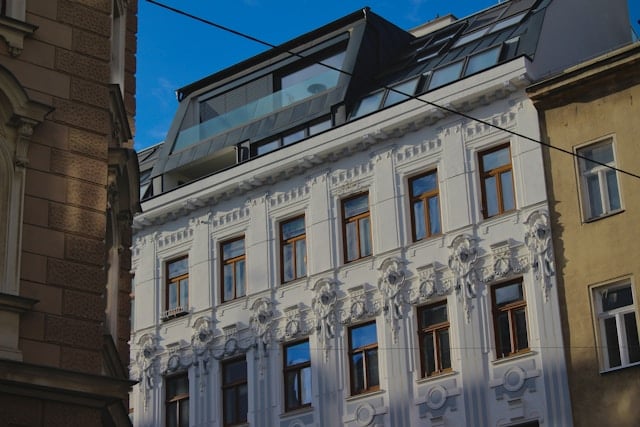Vienna has been awarded the title of the most liveable European city for many years and is home to Austrians and people worldwide. If you are considering moving to the Austrian capital, there are certain things you need to do before and upon arrival.
Obtain a permit if you are a non-EU/EEA citizen
If you are a non-EU/EEA citizen, you will need a permit to live and work in Austria. There are different types of permits available depending on your purpose of relocation. If you plan to study in Austria, you can apply for a student visa, and if you are seeking employment, you will need to find a job with an Austrian employer for a position that cannot be filled by an EU/EEA citizen.
Other permit options include the family reunification visa, which is applicable if you have family members living in Austria. Alternatively, you may qualify for the so-called specialist visa if you possess certain specific skills or expertise needed in the Austrian labour market.
READ ALSO: When do Austrians think an immigrant is successfully integrated?
Find accommodation
Finding a place to stay before arriving in Vienna is a good idea. It might be challenging to secure long-term accommodation remotely, but you can also find short-term rentals in Vienna while you continue your search.
For short- and long-term options, you can explore rental listings on websites such as Willhaben, Immobilienscout24, or WG-Gesucht, join Facebook groups, or contact real estate agents. Additionally, you can consider temporary housing options such as Airbnb while you search for something more permanent.
After living in Austria for a while, you can apply for social housing (Gemeindebau) if you meet specific criteria, such as earning below a certain income threshold. Social housing offers flats with lower rents subsidised by the state. Furthermore, you can also join a waiting list for a “Genossenschaftwohnung,” a form of cooperative housing where you share space and maintenance costs with others and where the state also subsidises the flats.
READ ALSO: How can I move into affordable cooperative housing in Vienna?
Find a job
Another good idea is to find a job as quickly as possible, as this is the most effective way to integrate and ensure economic stability.
Once you are eligible to work in the country, update your CV according to Austrian standards, and if you know German, translate it. You can find job openings through various platforms and social forums such as LinkedIn, StepStone, karriere.at, and Indeed Austria.
Another helpful step is registering as an unemployed job seeker with the Public Employment Service, AMS. This is not mandatory but might be beneficial since AMS can provide you with professional counselling from a personal advisor.
You may also receive recommendations for courses and job openings that match your profile.
Register your residence
If you move to Austria from another country or relocate to a new residence within Austria, you must register (anmelden) at your new address within three days of moving in. You can do this at any Residence Registration Service Centre (Meldeservicestelle) in Vienna; there is usually one in each district.
It is a good idea to book the registration appointment online. At the time of your appointment, documents such as your passport and the residence registration form (Meldezettel) need to be presented.
The registration form must be signed by you and the person who owns or rents the place you live in. Address registration is free of charge.
READ ALSO: How can foreign nationals bring their family members to Austria?
Open a bank account
First of all, you have to choose which bank you would like to open an account with. Austria’s most common and popular banks are Erste Bank, Raiffeisen Bank, and Bank Austria.
To open an account, you must present certain documents, including the address registration form (Meldezettel), passport, and sometimes an employment or residence permit for non-EU citizens. Usually, the account is opened by scheduling an appointment at the bank. Alternatively, some banks offer online opening options.
You will be informed about different account types and services at the opening appointment. After choosing what suits you the best, your bank usually usually orders to your address, and the bank’s application services are installed on your phone.
READ ALSO: Do I need to open a local bank account when moving to Austria?
Get health insurance
If you are employed in Austria, you will be insured by the insurance fund that your employer uses. The most typical is the public health insurance fund Österreichische Gesundheitskasse (ÖGK) or Sozialversicherungsanstalt der Selbständigen (SVS) if you are self-employed. If you are working for a company, your employer is responsible for registering you with the appropriate health insurance fund based on your type of employment.
Contributions to public health insurance are deducted monthly from your salary, and coverage is provided through the Austrian social security system. Once enrolled in the system, you will receive a health insurance card (E-Card) by post, which you can use to access medical services.
As a student, you usually have to pay for your public health insurance yourself but to a subsidised amount of €69.13 (2024).
If you are considering private insurance, you can look at the healthcare packages from private funds.
READ ALSO: First steps: What to do when searching for a new job in Austria
Set up utilities
When setting up utilities such as electricity, gas, water, heating, and internet providers, doing some research is a good idea.
Prices and services can vary, so you need to find what suits you best. It can be beneficial to contact the utility providers to ask about available service plans and pricing while considering factors such as your household size, energy consumption habits, and budget.
The most common electricity and gas providers in Vienna are Wien Energie and EVN AG.




 Please whitelist us to continue reading.
Please whitelist us to continue reading.
Member comments